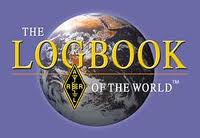Introduction:
- Intro from Pete, VE2XPL, host of the wAVEgUIDES pODcAST.
- Promo for the GNU World Order podcast.
Announcements:
- Hello to the new folks in the chat room.
- The Mintcast podcast is either going to stop or will have new hosts after the next episode. If you're interested in hosting a podcast, contact the folks over there.
- Please spread the word about MAGNetcon, the Mid-America GNU/Linux Networkers Conference, to be held May 6-7, 2011 at the St. Louis Union Station Marriott. If you know anyone that might be a sponsor, exhibitor, or speaker, please let us know. Application forms are available on the web site.
- Check out the new website for Resonant Frequency.
- Also mentioned, the Going Linux podcast and Computer America, "America's longest-running nationally syndicated radio talk show about computers."
Feedback:
- Richard, KR4EY, writes about CW... wait, we did this one in Episode 52.
- John, KC8DAX, weighs in on the Windows vs. Linux debate: there are hams that will buy a wire antenna and there are others that will build one. He thinks it's the same thing with operating systems. Would you want a radio you couldn't open? Our hosts discuss.
- We received a donation from Charles to help send Linux in the Ham Shack to the 2011 Dayton Hamvention. Thank you, Charles!
- Joe, K1RBY, recently discovered the podcast and is catching up, but is having a problem using gpodder to retrieve episodes. Yes, Joe, there is a bug in one of the WordPress plugins on the web site that contributed to the problem (see lhspodcast.info for a description of the problem.) It has been corrected.
- John, K7JM, also had the problem with gpodder and sends his appreciation for the fix.
- Richard, KJ4VGV, tells us that he is a new amateur radio operator since May and has published an article: Antenna Restrictions: Are They a Catastrophe Waiting to Happen? Good job, Richard!
- James, N2ENN, comments about our episode 52 when we discussed Unity, and offers his thoughts on Wayland, Debian and Ubuntu. Our hosts discuss, and digress to a discussion of browsers, plugins, drivers, ALSA and PulseAudio on Debian vs. LinuxMint Debian Edition. They also commment on Bill Meara's (of SolderSmoke fame) efforts to get WSPR running under WINE in Ubuntu.
- Paul, KE5WMA, writes "PIC micro controllers are getting more popular in HAM projects. Any suggestions on programming software and boards?" Well, Paul, Linux does still support serial ports, but this may be a good topic for another show. You might find something useful in the many hits returned by a Google search on "Linux PIC programmer".
- B.B., KC5PIY, asks for help with getting Windows programs for programming radios, such as the Icom IC-2820H and IC-706 MkIIg, running under Linux. He'd also like an APRS client. Richard recommends UIView as an APRS client for Windows, and Xastir for Linux. Russ suggests that most of the radio programming applications will run under WINE in Linux. Also, check out CHIRP, free Linux software for programming a variety of D-STAR radios. You may also want to explore the D-RATS mailing list. It's not likely you'll be able to dual-boot Windows and Linux on that netbook, but you can install Ubuntu Linux using WUBI, which would allow you to run Linux within Windows, or install Linux to a USB flash drive using Pen Drive Linux.
- Craig, KB5UEJ, writes about learning IPv6: "I went through the Hurricane Electric certification program and really learned lots about IPv6. I'm now running IPv6 on my home using HEs IPv6 tunnelbroker service. It's no longer the big bad scary thing that it used to be." Russ also talked about IPv6 on episode 6 of his QSK podcast.
- Matt shares his thoughts about building "simple" projects from junk box parts and the similarity to running Linux.
Contact Info:
- Contact Richard at kb5jbv@gmail.com, Russ at k5tux@lhspodcast.info, or both at the same time at info@lhspodcast.info.
- Listen to the live stream every other Tuesday at 8:00pm Central time. Check the LHS web site for dates.
- Leave us a voice mail at 417-200-4811, or record an introduction to the podcast.
- Sign up for the LHS mailing list.
- Sign up for the MAGNetcon mailing list.
- LHS merchandise is available at the SHOP! link on Web site. Check out the Badgerwear or buy one of the other LHS-branded items at PrintFection.com/lhs or Cafe Press. Thanks!
- Thanks to Dave from Gamma Leonis for the theme music.
Music:
- "Balboa" by Ness from the album Fiesta, courtesy of Jamendo.
- "Crawling Back In" by Deathalizer from the album It Dwells Within, courtesy of Jamendo.
